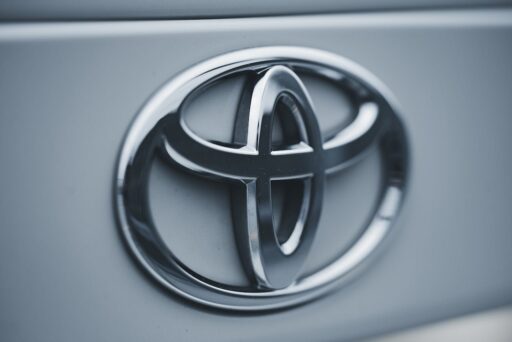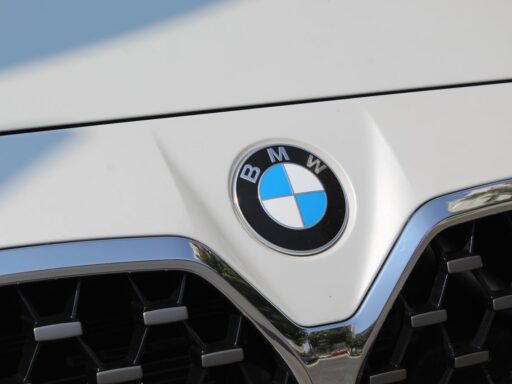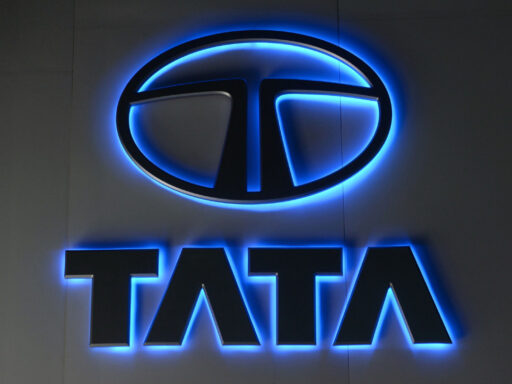Toyota has established itself as a leader in sustainability within the automotive industry, integrating circular economy principles, carbon reduction initiatives, and AI-driven supply chain management into its broader corporate strategy. The company’s latest North American Environmental Sustainability Report (2023) highlights its efforts to improve waste management, renewable energy adoption, and sustainable manufacturing processes. Toyota’s commitment aligns with global climate goals, including the Paris Agreement and the United Nations Sustainable Development Goals (SDGs).
Through strategic collaborations and investment in green technologies, Toyota aims to reduce its environmental footprint, enhance operational efficiency, and develop sustainable mobility solutions. The company’s sustainability framework focuses on circular economy models, waste-to-energy technologies, responsible sourcing, and governance-driven accountability.
Sustainability Strategy and Goals
Toyota’s sustainability strategy is built around key principles such as reducing environmental impact, mitigating climate risks, and offsetting carbon emissions. The company has set ambitious sustainability targets in alignment with global standards like the Science-Based Targets initiative (SBTi) and the Carbon Disclosure Project (CDP).
Net zero and carbon emissions: Toyota is committed to achieving carbon neutrality by 2050 across its entire value chain. The company has pledged to reduce CO2 emissions from vehicle production and operations by 35% by 2030 compared to 2013 levels. Investments in hydrogen fuel cell technology and hybrid-electric powertrains are central to its carbon reduction strategy. Toyota is also expanding its renewable energy portfolio, with a goal of sourcing 100% of its electricity from renewable sources by 2035.
Water stewardship: Toyota has implemented extensive water conservation initiatives across its manufacturing plants, with a focus on reducing water usage, recycling wastewater, and protecting local water ecosystems. The company aims to reduce water consumption per vehicle produced by 15% by 2030. Toyota’s zero water discharge systems ensure that factory wastewater is treated and reused, minimizing water waste.
Regenerative agriculture and biodiversity: Toyota actively supports reforestation and regenerative agriculture projects to offset carbon emissions and promote biodiversity. The company has partnered with global conservation organizations to restore natural habitats around its production sites and supply chain regions. Toyota’s Green Wave Project focuses on planting trees in urban and industrial zones to improve air quality and carbon sequestration.
Deforestation and biodiversity: Toyota has committed to achieving a deforestation-free supply chain by 2030 by sourcing sustainable raw materials such as rubber, aluminum, and bio-based plastics. The company is actively working with suppliers to ensure zero deforestation policies and promote the use of recycled and responsibly sourced materials in its vehicles.
Packaging and circular economy: Toyota has embedded circular economy principles into its supply chain, with over 93% of waste generated from its manufacturing operations being recycled, reused, or repurposed annually. The company is reducing plastic packaging in its supply chain by incorporating biodegradable materials and recycled plastics into vehicle components and logistics operations. Toyota’s partnership with Argonne National Laboratory for lithium-ion battery recycling further supports its circular economy efforts.
Human rights and responsible sourcing: Toyota enforces strict ethical sourcing policies across its global supply chain to ensure that suppliers adhere to labor rights, fair wages, and environmental protection regulations. The company conducts third-party supplier audits and participates in the Responsible Business Alliance (RBA) to promote ethical supply chain practices.
Community and social impact: Toyota’s sustainability strategy extends to social impact programs, including STEM education initiatives, workforce training for underprivileged communities, and sustainable mobility solutions for urban areas. The company is investing in electric vehicle infrastructure and public transit solutions to promote clean transportation access worldwide.
Governance and transparency: Toyota integrates ESG (Environmental, Social, and Governance) principles into its corporate governance structure. The company’s sustainability initiatives are overseen by a dedicated Sustainability Committee, ensuring transparency and compliance with international sustainability reporting standards. Toyota actively reports to third-party organizations such as the CDP and SBTi to validate its sustainability progress.
Technology and innovation: Toyota is leveraging artificial intelligence, blockchain, and data analytics to improve supply chain sustainability, carbon tracking, and energy efficiency. The company has introduced AI-powered logistics optimization systems to reduce fuel consumption and improve route efficiency for vehicle distribution.
Global partnerships and advocacy: Toyota collaborates with international organizations, governments, and environmental groups to advocate for clean energy policies, sustainable manufacturing practices, and electric mobility solutions. The company is a founding member of The Climate Group’s EV100 initiative, aiming to accelerate the transition to zero-emission vehicles.
Competitive Industry Analysis
Toyota’s sustainability efforts place it alongside major industry competitors such as Tesla, Volkswagen, and Ford. Each automaker is implementing distinct sustainability strategies tailored to their production models, technology investments, and long-term goals.
- Tesla: Tesla leads the industry in battery-electric vehicle (BEV) production, focusing exclusively on all-electric mobility. While Toyota has a diversified approach, including hybrids and hydrogen fuel cells, Tesla has prioritized scaling battery technology and renewable energy infrastructure through its Supercharger network.
- Volkswagen: Volkswagen has set aggressive carbon neutrality targets, aiming for a 100% electric lineup in Europe by 2035. The company is investing heavily in battery production and recycling, similar to Toyota’s lithium-ion battery recycling initiatives.
- Ford: Ford has committed $22 billion to electrification, with a focus on hybrid and electric trucks. The company is improving manufacturing sustainability by integrating recycled materials into vehicle production and expanding renewable energy adoption in its factories.
- General Motors: GM has set a goal of achieving an all-electric future, phasing out gasoline and diesel-powered vehicles by 2035. Its Ultium battery platform competes directly with Toyota’s hydrogen and hybrid vehicle lineup.
Toyota’s balanced approach, including hybrid-electric, hydrogen, and circular economy principles, positions it as a sustainability leader, while competitors focus primarily on full electrification.
Key Sustainability Innovations and Technologies
Toyota has introduced multiple innovations to drive sustainability across its value chain.
- Hydrogen fuel cell technology: Toyota is leading advancements in hydrogen-powered vehicles, with the Toyota Mirai being one of the most commercially viable fuel cell vehicles available today. Hydrogen energy plays a crucial role in Toyota’s long-term decarbonization strategy.
- Battery recycling and second-life applications: Through its partnership with Argonne National Laboratory, Toyota has developed advanced battery recycling technologies to repurpose old EV and hybrid batteries, reducing battery waste and improving material recovery.
- Renewable energy adoption: Toyota has invested in solar, wind, and hydroelectric power to reduce its reliance on fossil fuels. The company has committed to using 100% renewable energy at all its manufacturing facilities by 2035.
- Smart manufacturing and AI-driven supply chains: Toyota is integrating AI and IoT technologies to improve manufacturing efficiency, reduce waste, and track carbon emissions. AI-powered predictive maintenance systems help Toyota optimize resource usage and minimize production downtime.
Challenges and Areas for Improvement
Toyota continues to face challenges in fully scaling its sustainability efforts globally.
- Supply chain complexity: Ensuring all suppliers adhere to sustainability standards remains a challenge due to the complexity of Toyota’s global supply chain.
- Battery recycling infrastructure: While Toyota is making progress in battery circularity, global battery recycling networks need expansion to meet the growing demand for electric vehicles.
- Plastic reduction: Although Toyota is increasing bio-based plastic usage, eliminating single-use plastics in vehicle components remains a challenge.
- Renewable energy transition: Scaling up 100% renewable energy adoption in all regions requires significant infrastructure investment and policy support.
Future Plans
Toyota’s long-term sustainability roadmap includes:
- Achieving carbon neutrality across all operations and products by 2050.
- Expanding its zero-emission vehicle lineup, aiming for 50% of sales to come from EVs and hybrids by 2030.
- Investing in closed-loop manufacturing to further reduce material waste and emissions.
- Partnering with governments and organizations to expand charging infrastructure and hydrogen refueling stations globally.
Toyota’s commitment to sustainability and circular economy practices places it at the forefront of environmentally responsible automotive manufacturing. By integrating renewable energy, AI-driven efficiency, and waste reduction initiatives, Toyota is shaping a more sustainable future for mobility. The company’s focus on innovation and responsible sourcing ensures long-term resilience and industry leadership.
For more details, refer to Toyota’s latest Environmental Sustainability Report 2023:
Toyota Environmental Sustainability Report 2023.






